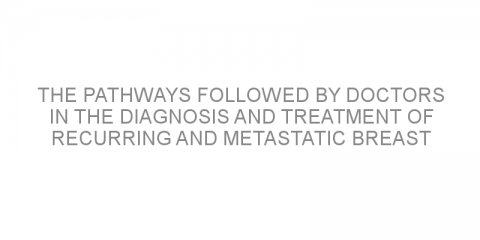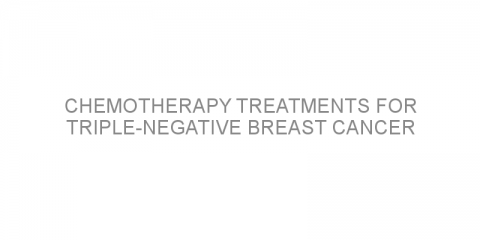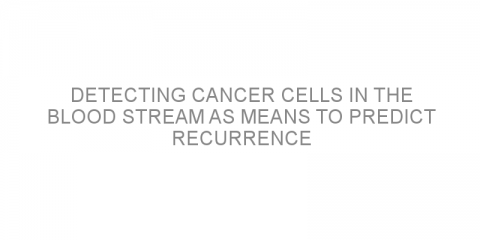In a nutshell This study assessed the efficacy of using ultrasound (US) in the early detection of recurrence of breast cancer in patients without any symptoms. Some background There are two surgery options to treat patients with breast cancer; Mastectomy (removal of the entire breast) and breast conserving surgery or lumpectomy (removal of...
Read MoreTreatment(s) already received-Total mastectomy Posts on Medivizor
The pathways followed by doctors in the diagnosis and treatment of recurring and metastatic breast cancer
This paper evaluates the process health care professionals follow to diagnose a cancer that reoccurs in the same location as a previous cancer (locally recurrent), or a cancer that has spread (metastasized). Despite earlier detection and improved treatment options for breast cancer, it is still the leading cause of cancer related deaths in...
Read MorePersonalizing breast cancer treatment based on the genetic “finger-print” of the tumor
This article discusses how tests such as the Oncotype DX or Mammaprint can be used to design individual treatment plans for patients with breast cancer. Patients with stage I and stage II breast cancer are treated similarly. Following surgical removal of a breast tumor, systemic (body-wide) treatment is often used. This secondary treatment is...
Read MoreChemotherapy Treatments For Triple-Negative Breast Cancer
This paper reviews chemotherapy options for triple-negative breast cancers. Breast cancer cells express 3 main receptors that can be targeted with therapy: Estrogen receptors (ER), Progesterone receptors (PR) and HER2. Triple-negative breast cancers (TNBCs) do not express these 3 receptors and make up approximately 15% of breast cancers. Such tumors do...
Read MoreDetecting cancer cells in the blood stream as means to predict recurrence
In a nutshell The present study evaluated whether the presence of cancer cells in the blood stream predicts a worse prognosis in women with operable breast cancer. The main finding was that progression-free survival (time before cancer progression) and overall survival were lower if circulating cancer cells were detected in the blood. Some background...
Read More







